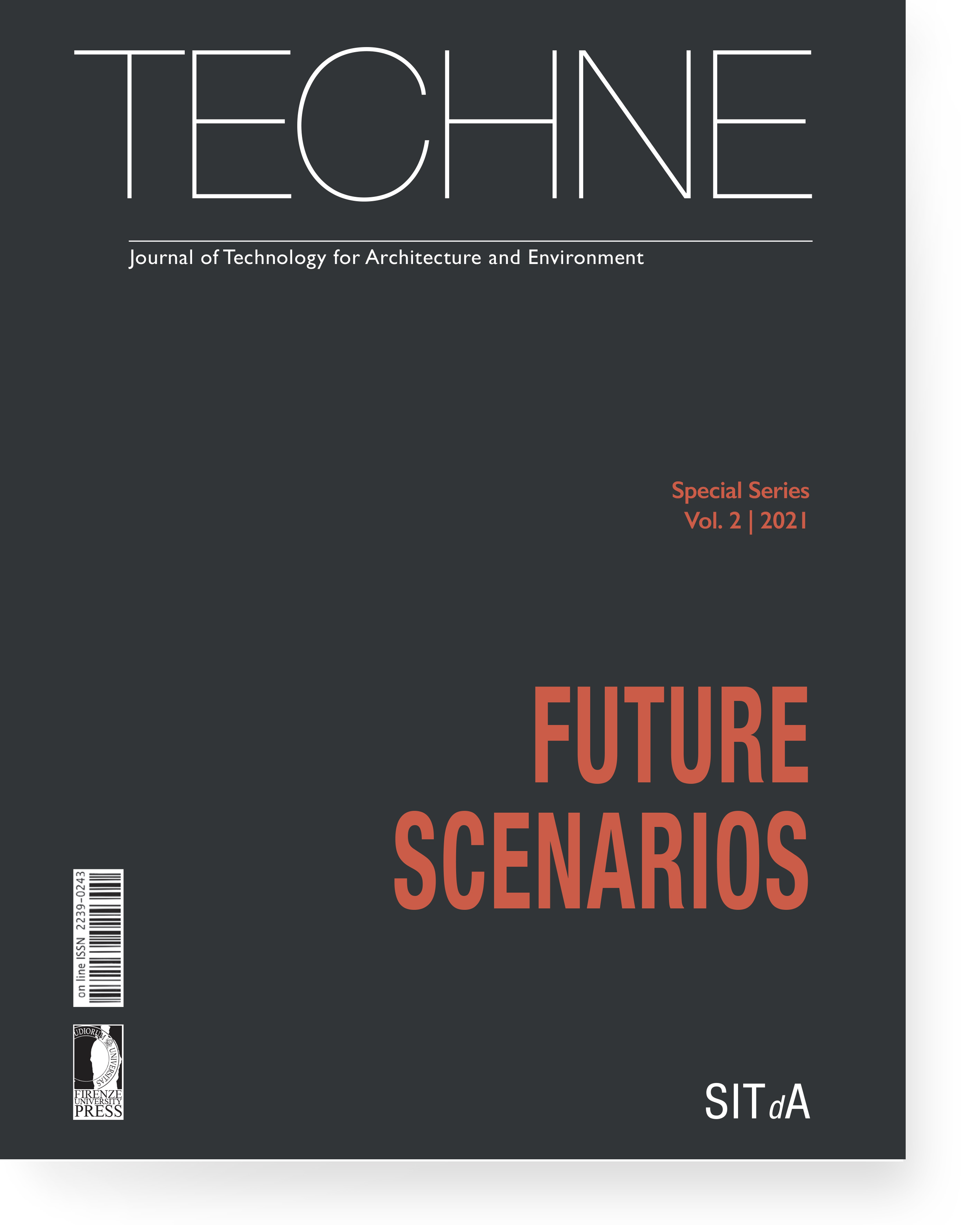TECHNE: Special Series Vol. 2
Issue Description
At the time, in the holder of this issue of TECHNE Future Scenar-ios, no one could certainly imagine the serious incidents of public health emergencies that have invested nations and peoples, heavily engulfing the global economy. ‘What is to come’– future scenarios -is not a new question”: this was the incipt of the call of the number, challenging and purposeful, certainly assertive as can be the thought of those who look to the future with positivity and optimism: «[...]
Numerous and diversified papers contained in the text – 27 selected by double blind review among the 104 received – that through the development of the five topics proposed in the call, focus the issues on possible future arrangements.It is, in fact, evident that with the wide diffusion of digital technolo-gies, the culture of the project is undergoing significant transfor-mations. On the one hand, by obtaining greater design and imple-mentation performance. On the other hand – in the transition from a traditional, linear and sequential approach to an integrated and interactive one – modifying the ideation and expressive methods that will necessarily require a change in the management of the rela-tionship between human creativity and artificial intelligence

